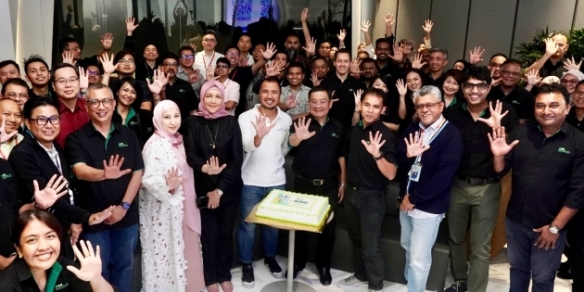Jeremy Malcolm
The noose tightens on freedom of speech on the Internet
A worrying trend has emerged in the last few years, where intermediaries around the world are being used as chokepoints to restrict freedom of expression online, and to hold users accountable for content.
Unpeeling the Dark Web with OnionCity
There are parts of the Internet not indexed by Google and other standard search engines, known as the ‘Deep Web,’ and OnionCity aims to help you get there, writes Gabey Goh.
Global cultural treasures we will lose for 20yrs under the TPP
What do Japan’s Blue Sky Library, Malaysia’s answer to John Wayne, and the first recorded composer from New Zealand, all have in common? They could all disappear from their countries’ public domain for the next 20 years, if the current agreement on copyright term extension in the TPP holds, writes Dr Jeremy Malcolm of the EFF.
Digital consumers breaking through the cloud
If you can, then take the next step in regaining control of your own data, by moving it to a service controlled by you or by those you trust. By doing so, you'll be bringing the Net one step closer back to the decentralised, egalitarian network of users that it was when it began, writes Dr Jeremy Malcolm.
Net neutrality, and the cost of ‘free data’ for consumers
‘Free’ data sounds great, but it usually comes with a cost hidden behind backroom deals made between content and network providers, writes Dr Jeremy Malcolm.
Developing online payment systems that protect consumers
Dr Jeremy Malcolm looks at efforts to develop a common, interoperable system for e-payments, the need for such a system, and how it may affect consumers.
Asian countries battle IP ‘maximalism’ in leaked TPP chapter
The leak of the TPP's IP chapter confirms that we were all right to be worried – the TPP is indeed bad news, writes Dr Jeremy Malcolm.
Brazil Summit heralds major Internet governance reforms
The technical community managing the Internet has retreated on major governance reforms, writes Dr Jeremy Malcolm.
Web Consortium's failures show limits of self-regulation
None of the organisations involved in Internet governance actually represents grassroots Internet users, or are even multi-stakeholder by any usual definition of the term, argues Dr Jeremy Malcolm.
Is digital piracy harmful to consumers?
Anti-counterfeiting campaigns shouldn't be cloaked as consumer protection measures, when what they really come down to are protecting industry’s copyright and patent rights, and the monopoly profits that they draw from those rights, writes Dr Jeremy Malcolm.


